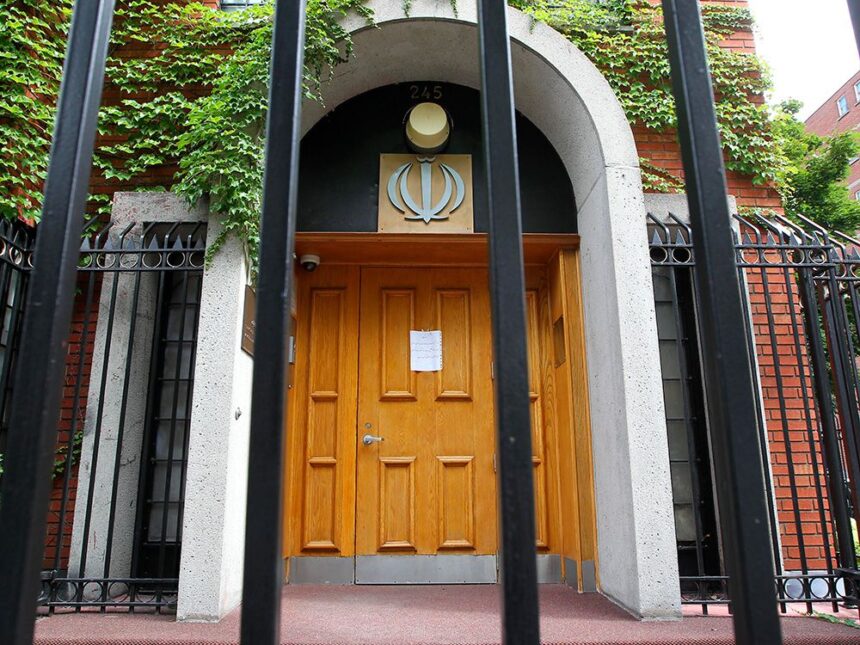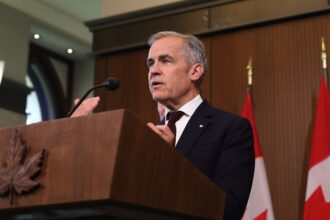In an unprecedented diplomatic move, Canada has ordered all identified Iranian regime officials to leave the country immediately, citing grave national security concerns and growing evidence of intimidation tactics against Canadian citizens. The expulsion marks a significant escalation in Canada’s stance against what officials describe as Tehran’s “pattern of malign behavior” on Canadian soil.
Foreign Affairs Minister Mélanie Joly announced the decision Monday, revealing that approximately 10 individuals with confirmed ties to Iran’s Islamic Revolutionary Guard Corps (IRGC) and other regime entities had been living in Canada despite Ottawa having no formal diplomatic relations with Tehran since 2012.
“These individuals should never have been allowed into Canada in the first place,” Joly stated during a press conference in Ottawa. “Their presence poses a serious threat to Canadians, particularly those in Iranian-Canadian communities who have faced harassment, intimidation, and surveillance for speaking out against the regime.”
The move follows months of mounting evidence compiled by Canadian security agencies documenting systematic intimidation campaigns against regime critics. The Royal Canadian Mounted Police has identified multiple cases where Iranian-Canadians received threatening messages, experienced unexplained surveillance, or faced direct warnings about their anti-regime activities.
CSIS Director David Vigneault confirmed that Iranian officials have been operating a sophisticated network of influence and intimidation within Canadian borders. “We have documented clear evidence of foreign interference directed by Tehran that threatens the safety of Canadians and undermines our democratic institutions,” Vigneault explained.
The Iranian-Canadian Congress criticized the government for not acting sooner, noting that community members have reported intimidation for years. Kaveh Shahrooz, a prominent human rights activist, described the expulsions as “long overdue but welcome.”
“Many of us have lived in fear, knowing that regime agents were operating freely in Canada while our relatives in Iran faced potential consequences for our activities here,” Shahrooz told CO24.
The diplomatic tension occurs against the backdrop of broader global concerns about Iran’s activities abroad. Several European nations have taken similar measures in recent months, with Germany and France both expelling Iranian officials linked to surveillance operations against dissidents.
Prime Minister Justin Trudeau defended the action as necessary for protecting Canadian sovereignty. “Canada will not tolerate foreign interference or intimidation. Individuals connected to the Iranian regime have no place in our country while they threaten the safety and security of Canadians,” he stated during Question Period.
The Iranian embassy in Pakistan, which handles Iranian interests in Canada, called the expulsions “baseless” and “politically motivated,” warning of potential reciprocal actions against Canadian interests.
Security experts note that the challenge remains identifying all regime-connected individuals. Jessica Davis, former CSIS intelligence analyst and president of Insight Threat Intelligence, explained that Iranian operations often employ proxies without official status.
“These expulsions target known officials, but Tehran’s playbook includes using students, business people, and community members as informal agents,” Davis said. “The network likely extends beyond those being expelled.”
The government has pledged additional security measures, including enhanced monitoring of entry visas from Iran and increased support for Iranian-Canadians facing intimidation. Public Safety Minister Dominic LeBlanc announced a new reporting mechanism for community members experiencing threats.
As Canada takes this dramatic step in its approach to Iranian regime activities, the fundamental question remains: how will democratic nations balance openness with the growing challenge of protecting their citizens from foreign intimidation campaigns operating within their own borders?










